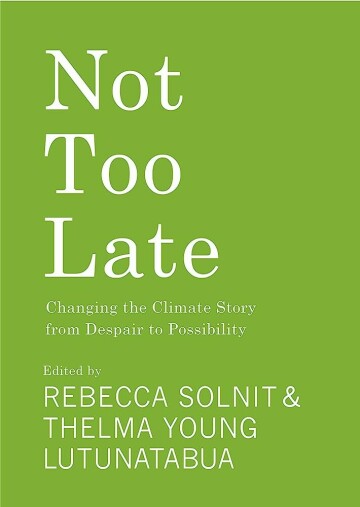What's our decision, Duluth?

At the beginning of her book Not Too Late: Changing the Climate Story from Despair to Possibility, Rebecca Solnit wrote, "It is late. We are deep in an emergency. But it is not too late, because the emergency is not over. The outcome is not decided. We are deciding it now. The longer we wait to act, the more limited the options."
Back in the spring of 2018, we were warned that our city faced a climate emergency. The climate vulnerability assessment for Duluth reported that from 1950 through 2015, our city had already experienced a 1.8 degree increase in the annual average temperature and that we could expect a 4 to 11 degree increase in the annual average temperature by 2100.
Also, the assessment stated, "Everyday, the City of Duluth is moving 145 feet to the South." Between 2040 and 2070, summer time conditions in Duluth will be similar to the conditions currently felt over 250 miles south of our city.
Now, in the summer of 2023, we've hopefully begun to realize and understand that climate events are happening sooner than most of us had expected and they're arriving with more extreme and deadly consequences. Earlier this week, we heard that July 3rd and 4th were the two hottest days ever recorded on Earth. And with the massive wildfires in Canada and the accompanying smoke and air quality alerts in Duluth and northern Minnesota, we are being reminded that climate change is impacting everyone and everything. Our city is not climate-proof or a climate haven. We do not live in a protective bubble. At 11:00 am, Central Time (US), on Saturday, July 22nd, people around the world will be recognizing Climate Emergency Day. Sponsored by Climate Clock, this special day gives us an opportunity to stop and reflect upon how climate is everything and we have less than six years to drastically reduce fossil fuel emissions to stay below 1.5 degrees Celsius warming.
Here in Duluth, on the 22nd, we will gather at the Rose Garden for a climate vigil. Our mission is to acknowledge what the city is currently doing to address climate change, hear about the latest climate news and events, and share our ideas and visions for Duluth's future, especially over the next five years. Also, beginning on Monday, July 17th, we will present "It's Time Duluth" - a climate awareness campaign to promote climate education, foster climate conversations and encourage people to undertake individual and collective climate actions.
During this campaign, we will highlight climate books from Zenith Bookstore and the Duluth Public Library, interview the founder of One Climate Action, staff at Climate Clock and producers of the Climate Emergency: Feedback Loops films for the Climate>Duluth series on PACT-TV, host a climate cafe, distribute a climate briefing to city leaders, promote Climate Steps and The Climate Report, and share the work of our creative arts community.
Andrew Boyd, the creator of Climate Clock and author of I Want a Better Catastrophe: Navigating The Climate Crisis With Grief, Hope, And Gallows Humor, wrote, "Grounded hope offers us no guarantee that we'll ever walk on out of this darkness, but it shows us how to to walk through it. Here, one simply does what is right and what is necessary - and the doing and the walking are their own reward."
How do we ground ourselves for the climate future? What are the right and necessary things that we must do to address this climate emergency? When do we begin adapting and preparing for new and more challenging climate events?
Maybe, it's time to establish a citizen's climate commission or organize a citizen's climate assembly, present climate education programs in all schools and offer mental health services and support groups to young people experiencing climate anxiety and depression.
From this moment forward, how will we navigate this climate emergency? How will we collectively respond to the multiple impacts of climate change upon our city's infrastructure, public health, the natural environment, management of energy resources, and food production? How will we prepare ourselves for the ongoing rise in the atmospheric CO2 levels and higher temperatures?
It's time to invite and bring all of our community stakeholders to the same table to collectively compose a new vision for our city that embraces our compassion, creativity and courage in this moment of extraordinary challenges. It's time to face this ever changing climate reality. It's no longer fiction or a fantasy.
For more information about Climate Emergency Day and the climate awareness campaign, email us at risson1954@gmail.com.
